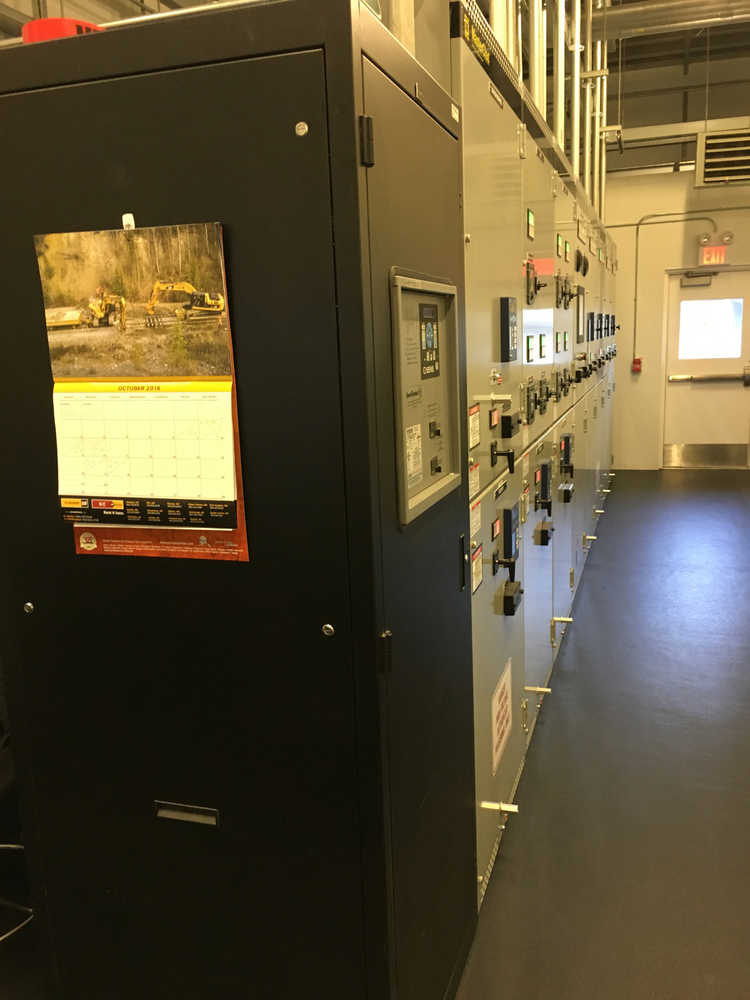The City and Borough of Yakutat has reached a deal to sell its municipal electric-power utility to the Alaska Village Electric Cooperative, but state regulators will have the final say.
On Friday, the Regulatory Commission of Alaska published notice of the utility transfer from the borough to AVEC, which manages the electricity of 56 other communities in Alaska. Yakutat would be AVEC’s first community in Southeast Alaska.
“We’re a small small village, and it’s hard for a small village like Yakutat to carry the expertise and staffing with all the training … and reinvent the wheel every time to run a complex facility like a power plant,” said Bob Miller, a former Yakutat borough assemblyman who was among those who spurred investigation of the sale two years ago.
“It’s just much more efficient to be a part of a larger organization,” he said.
Under the terms of the deal, the borough will receive $300,000, and AVEC will assume liability for the system “as is.”
AVEC has offered to employ the utility’s five full-time employees for at least six months after the transfer, and for each of the next five years, it will invest $250,000 to improve Yakutat’s electrical lines, transformers and overall distribution network.
Yakutat boasts a new $8 million state-funded power plant that opened in 2014, but its distribution system is old, some portions dating to World War II.
“This past weekend, we went over a day without any power out at the airport because the system is crumbling,” Miller said.
In that time, AVEC will not be allowed to increase the price of electricity in Yakutat.
“Rates will actually drop,” said borough manager Jon Erickson, “an average of 10 percent on the non-fuel side.”
Because AVEC is a cooperative, Erickson said the deal should be considered “more of a merger” than an outright sale.
“We’re going to basically own 1/57th of AVEC,” Miller said in agreement. “It’s kind of actually like we’re buying part of AVEC more than they’re buying us.”
Dean Thompson, an Anchorage-based attorney for AVEC, said by phone that the company was interested in the deal for two principal reasons.
“No. 1 is AVEC is set up to be able to provide service for remote locations, just the way its organization is set up,” he said. “No. 2 is that the more customers and kilowatt-hours AVEC has, it reduces the overall cost for AVEC customers.”
Utilities rely on economies of scale to save money on operations. Fuel is cheaper in bulk than in small amounts, and in-house expertise and equipment is cheaper than hiring a contractor.
In addition, the more customers a company has, the more it can spread its cost. A larger system will tend to be more efficient than a smaller one.
“I think financially, that is the benefit for AVEC’s (existing) customers,” Thompson said. “Its fixed costs can be spread over a greater number of units.”
AVEC wasn’t the only utility seeking to acquire Yakutat. According to documents from the City and Borough of Yakutat, Alaska Power and Telephone, the Inside Passage Electrical Cooperative and some independent companies also made offers to acquire the system.
In a presentation dated July 1, 2015, AP&T offered $215,000 in up-front cash to Yakutat and $750,000 in investments over five years. While those figures were lower than AVEC’s offer, AP&T anticipated charging less for electricity.
The Yakutat sale comes amid a wave of consolidation in Alaska’s local energy industry. In 2014, AP&T acquired Gustavus Electric Co., the municipal company serving that town. That same year, Juneau’s Alaska Electric Light and Power was acquired by Avista, a Washington-based company.
Miller admitted that the acquisition is “a scary proposition” for some in town, but the assembly had been faced with a rate-funded municipal system that wasn’t responding well to requests from the borough manager or the assembly.
“They’ve been this autonomous monster that we’ve been unable to control,” he said of Yakutat’s municipal system. “I’d rather have professionals I can’t control.”
The Regulatory Commission of Alaska now has six months to approve or decline the transfer to AVEC.

